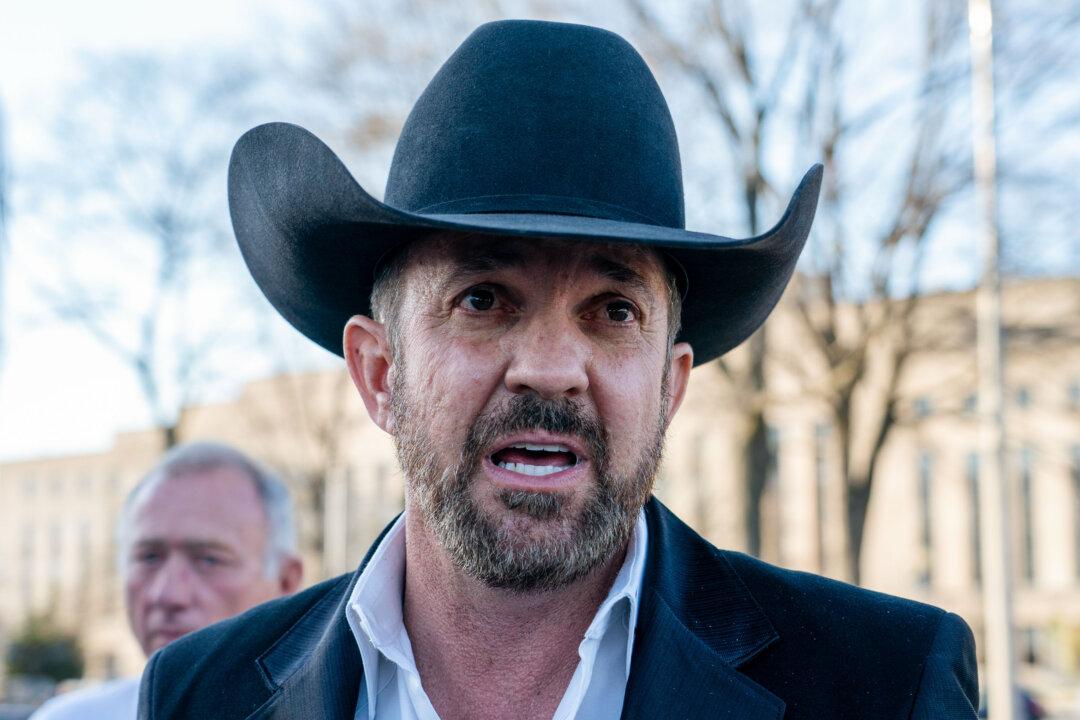A split panel of judges on the U.S. Court of Appeals for the District of Columbia Circuit on Oct. 22 upheld the conviction of Couy Griffin, a former Oklahoma commissioner and founder of the Cowboys for Trump group.
Griffin violated federal law that prohibits trespassing in a restricted area where a president or vice president will be, a majority said.





